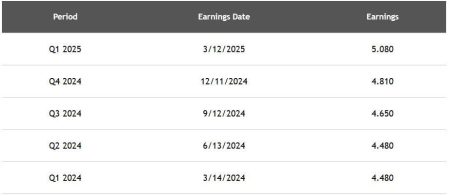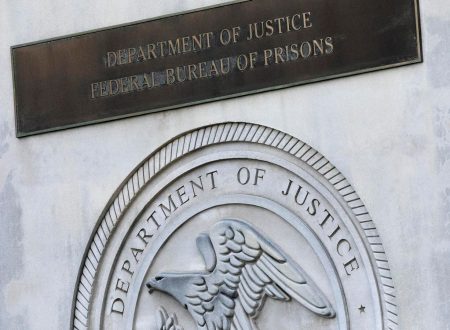The period spanning December and January constitutes a unique season for industries reliant on trust and financial investment, including commercial real estate. This period is marked by a deluge of predictions and forecasts from self-proclaimed experts, akin to carolers arriving at your doorstep, eager to share their insights. However, discerning the accuracy and reliability of these predictions poses a significant challenge. While even genuine experts are not infallible, investors seek assurance that their advisors are grounded in reality, unlike some fund managers, television personalities, and prognosticators whose pronouncements have often proven detached from market realities.
While forecasting is not exclusive to this time of year, the year’s end and beginning provide a prominent platform for advisors, vendors, market research firms, and others to unveil their market outlooks. These predictions serve not merely as intellectual exercises or bragging rights but primarily as sales tools – a justifiable practice in the competitive landscape of financial services. For investors contemplating significant financial commitments, scrutinizing past predictions becomes a crucial vetting step. Comparing prior forecasts with actual outcomes provides valuable insights into the predictor’s accuracy and foresight.
Examining the case of LPL Financial, an independent broker-dealer, offers a practical illustration of this process. Their retrospective analysis of their 2024 predictions reveals both hits and misses. They correctly advised staying fully invested, a generally sound recommendation, particularly given recessionary fears at the close of 2023. This proved to be a prudent strategy as equity markets performed well. However, they acknowledge missing an opportunity to further capitalize on market fluctuations. Despite correctly predicting the outperformance of growth stocks over value stocks by a significant margin, and accurately anticipating the strong performance of communication services while cautioning against over-investment in real estate, their overall S&P 500 target price fell short.
Their underestimate stemmed from an overly conservative projection of the price-to-earnings ratio, influenced by prevailing high-interest rates. In the fixed-income arena, LPL Financial correctly identified potential opportunities but admits to overestimating the appeal of preferred securities. Their predictions regarding corporate credit markets were also off the mark. Expecting a recession that failed to materialize, they underestimated the resilience of both investment-grade and high-yield corporate debt. This led to underinvestment in high-yield bonds and loans, which generated substantial returns. While acknowledging market expensiveness, they maintain a bullish outlook, suggesting further upside potential.
LPL Financial’s self-assessment provides a valuable model for transparency and accountability, one that should be expected from any financial advisor. While the absence of such self-critique doesn’t automatically disqualify an advisor, it does necessitate greater due diligence on the investor’s part. Comparing past predictions with actual market performance allows investors to gauge the advisor’s predictive accuracy and calibrate their trust accordingly. This practice of scrutinizing predictions shouldn’t be confined to the year-end/beginning period.
Throughout the year, investors should maintain a critical eye on market pronouncements, especially those emanating from entities directly selling financial products. Such pronouncements, however well-intentioned, may be tinged with self-interest. Cross-referencing predictions with available data, whether from private or government sources, provides an objective measure of their accuracy. Applying this rigorous approach specifically to the commercial real estate sector, investors should diligently compare predictions with actual market trends. This empowers them to make well-informed decisions, minimizing reliance on potentially biased or inaccurate forecasts.
This process of verifying predictions extends beyond simply comparing numerical targets. It involves understanding the underlying logic and assumptions behind the predictions. For instance, LPL Financial’s miss on the S&P 500 target stemmed from their assumption about the impact of interest rates on the price-to-earnings ratio. Examining such assumptions can provide valuable insights into an advisor’s analytical framework and potential blind spots. Moreover, focusing on the reasons behind correct predictions is equally important. Understanding why a prediction was accurate can reinforce confidence in an advisor’s understanding of market dynamics.
Furthermore, this analytical approach should not be limited to macro-level market predictions. It should also be applied to specific investment recommendations. If an advisor recommends a particular property or investment strategy, scrutinize the rationale behind the recommendation. Compare the projected returns with historical data and market comparables. Evaluate the risk factors and potential downsides. By actively engaging with the underlying logic and data, investors can move beyond passive acceptance of predictions and develop a more nuanced understanding of the investment landscape.
Finally, this emphasis on verifying predictions should not discourage investors from seeking expert advice. Forecasting is inherently complex, and even the most sophisticated models can be thrown off by unforeseen events. The goal is not to find a perfect predictor, but to find an advisor who demonstrates intellectual honesty, analytical rigor, and a willingness to learn from past mistakes. By engaging in a continuous process of verification and critical analysis, investors can navigate the complex world of commercial real estate and other investments with greater confidence and clarity. Ultimately, the most valuable asset in any investment decision is not a crystal ball, but informed judgment based on a thorough understanding of the market and the track record of those offering advice.










